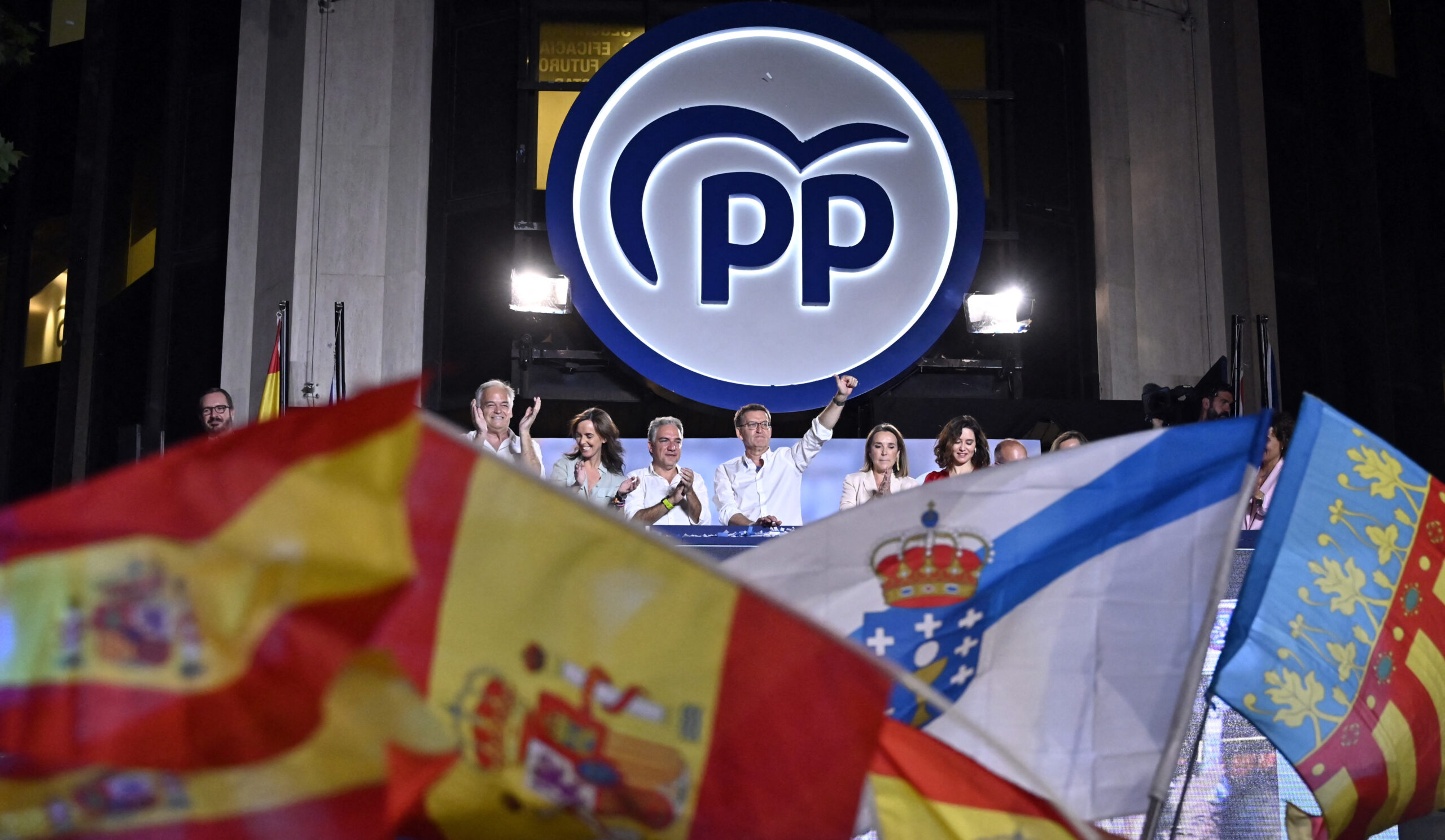
By The newspaper
Jul 23, 2023, 19:59 PM EDT
In the recent Spanish elections, the conservative Popular Party (PP) won a significant victory, with 136 seats, while the Socialist Party (PSOE) maintained its position as the second largest political force with 122 seats.
However, despite the PP’s gains, the election result presents challenges for forming a stable government due to the absence of an absolute majority for any political bloc.
The far-right Vox won 33 deputies, while the left-wing platform Sumar won 31 seats, according to the newspaper El País.
Amidst this fragmented landscape, pro-independence forces such as ERC, Junts per Catalunya and EH-Bildu experienced varying degrees of success. The diversity of parties in the new Congress adds complexity to the task of governing.
Spain: Challenges in the formation of a government
The victory of the PP means a significant increase in seats compared to the previous elections, but it does not reach an absolute majority on its own.
Likewise, the achievements of the PSOE do not give it the necessary majority for an easy path of governance. Given that neither the right nor the left bloc have enough representatives, the prospects for forming a government seem intricate.
First analysis of the general elections in Spain this Sunday:
1. Popular Party wins more seats.
2. PSOE wins 2 seats
3. Sumar wins 31 seats despite the fact that it is a meeting of various political parties and left-wing groups
4. VOX miserably loses 19 seats pic.twitter.com/LhVwuZ6P00— John Ángel Político (@SoydelaPolitica) July 23, 2023
The far-right Vox won 33 seats, cementing its presence in Congress. For its part, the leftist platform Sumar obtained 31 seats, experiencing a slight decrease compared to its predecessor, United We Can, in the previous elections. These results further accentuate the divided political landscape.
Spanish independence forces
The independence forces faced mixed results. The ERC Catalans suffered a setback with a reduction from 13 to 7 deputies, while Junts per Catalunya retained six seats.
For their part, the Basques of EH-Bildu surpassed the Basque Nationalist Party (PNV) with six deputies compared to the latter’s five.
With the Galician Nationalist Bloc (BNG), Coalición Canarias and Unión del Pueblo Navarro (UPN) each winning one seat, the new Congress will be made up of eleven different parties. This fragmentation adds complexity to potential coalition-building and governance efforts.
The victory of the conservative PP and the strong position of the PSOE in the Spanish elections indicate a divided political landscape. Without any block with an absolute majority, forming a government becomes a challenge.
The presence of the far-right Vox and the slight decline of the left-wing platform Sumar further accentuate the polarization. The independence forces also faced mixed results. The upcoming task of navigating a fragmented Congress with eleven different parties demands intricate coalition-building efforts to pave the way for effective government in Spain.
With information from EFE and El País.
Keep reading:
· The President of Spain, Pedro Sánchez, arrives in Washington for his first meeting with Biden
· New “Grandchildren’s Law” in Spain seeks more people from Latin America to opt for Spanish citizenship
· Chavismo attacks the United States and justifies the attacks against opposition leaders
